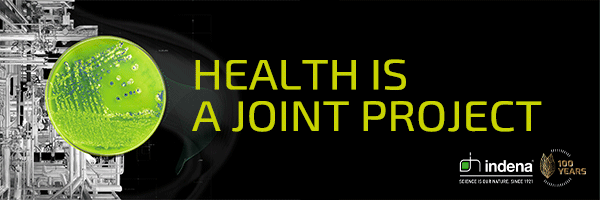Pharmaceuticals
REVAMP-ing antibiotic funding? 7th January 2019
By Dr Peter Jackson, Executive Director of the AMR Centre
The emerging health crisis around the dwindling supply of effective antibiotics has finally prompted action from policy make

The emerging health crisis around the dwindling supply of effective antibiotics has finally prompted action from policy makers. Dr Peter Jackson, Executive Director of the AMR Centre, looks at one of the more radical proposals to get the research pipeline working again.
When people imagine drug discovery, they think of researchers working diligently in chemistry and biology laboratories. The efforts of politicians to support medical breakthroughs probably seems a world away from the cutting edge of science, but a piece of legislation which lobbyists are trying to get before the US Congress could challenge that view.
The biggest hurdle in tackling anti-microbial resistance (AMR) is rewarding the huge investment needed in research and development (R&D) to create new drugs. As a result, over the past 30 years, investment in antibiotic R&D has dropped below the critical level needed to support a sustainable pipeline of new medicines to beat emerging superbugs.
The responsibility for pipeline is now defaulting to small bio-pharma companies and academia. In 2018 Novartis, the Swiss pharmaceutical giant, joined a long line of big names in abandoning its antibiotic programme. The exodus includes AstraZeneca, Sanofi, Bristol–Myers Squibb and Allergan. These exits can be attributed to the fact that the business model in antibiotics is too difficult: the market simply doesn’t provide a return on the investment required.
New antibiotics need to be used sparingly to guard against evolving new drug-resistant microbes. That translates to poor sales on drugs that have also been reimbursed at low levels due to historical generic competition. At the same time, the clinical effectiveness and the relatively low cost of traditional antibiotics have combined in a perfect storm of overuse, accelerating the development of antibiotic resistance to all major classes of antibiotics.
There is a grim paradox here: we have a global industry capable of creating drugs and surgical interventions for many diseases that can extend your chances of survival, but you may die anyway from a drug-resistant infection because we will have run out of effective antibiotics.
Around 700,000 people a year around the world lose their lives to drug-resistant infections. That figure is forecast to grow to 10 million by 2050 – claiming more lives than cancer today. Turning around this emerging global health crisis poses requires radical innovation to make the business model for antibiotic research attractive.
Following the UN General Assembly resolution in high-level resolution on AMR in 2016, all countries committed themselves to introducing new measures to improve the pipeline of new drugs and reward their development.
In the USA, Republican John Shimkus and Democrat Tony Cardenas are seeking to get the Re-Valuing Antimicrobial Products (REVAMP) Act before the US House of Representatives. REVAMP may be part of that solution and is certainly what AMR researchers the world over have called for – some bold and smart thinking, which genuinely incentivizes the industry.
At its core is an attractive offer: a transferable exclusivity voucher. If a company gets an antibiotic approved and that new product addresses a priority medical need, the company would receive a certificate for up to 12 months additional market exclusivity. It can transfer or sell this to another company to use on another high-value drug – potentially worth billions of dollars – to recoup their R&D investment in antimicrobial development.
REVAMP may not be the perfect answer, as extending the exclusivity for other live-saving drugs effectively makes patients pay more for their treatments than would otherwise be the case, as the introduction of lower-cost generic competition will be delayed by a year.
But it still has a compelling logic. As Kevin Outterson, Executive Director of the Combating Antibiotic Resistant Bacteria Biopharmaceutical Accelerator (CARB-X), one of the key international organizations funding and co-coordinating research, commented, “Antibiotics make other therapies possible; this spreads those costs on other drug classes.”
Other voices in the debate include Lord Jim O’Neill, the former chief economist of Goldman Sachs, who led the UK government’s influential review of antimicrobial resistance in 2016. He has called for a new tax on overall drug sales – citing the industry’s continued dependence of the whole sector on effective antibiotics as a justification for introduce a levy on sales of other drugs to fund AMR market entry rewards worth up to $1.2 billion.
Whether REVAMP progresses or fails, it is encouraging to see lawmakers introducing new ideas to help incentivise the creation of a new pipeline of antibiotics.
We now need to see legislators around the world fulfilling their countries’ commitments made in the UN declaration, ensuring that researchers, biotech companies and pharma companies can come together to effectively support patients suffering from the rising threat from drug-resistant superbugs.
Author:
Dr Peter Jackson, Executive Director at The AMR Centre, 19B70 Mereside, Alderley Park, Cheshire, SK10 4TG, UK
T: +44 (0) 161 274 9440


